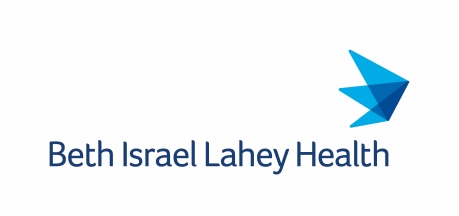1. WEB SITE GIVES PATIENTS ACCESS TO THEIR MEDICAL RECORDS
CareGroup Healthcare System recently launched PatientSite, a secure Web site that provides its patients with access to their medical records and to other personal and general medical information. CareGroup, Beth Israel Deaconess's parent organization, is one of the first health care organizations in this country to provide patients with direct, online access to their medical records.
PatientSite enables patients to view their medical records; chart and track personal health information such as weight, blood pressure and glucose levels; review insurance benefits; check on test results; request appointments; seek referrals; review and discuss bills; check drug-drug interactions; renew prescriptions; and send email to their providers. Patients also can modify their personal web pages to include a variety of general medical links, including a pharmacy locator.
"Patient empowerment is a significant trend in the United States, and the Web can help patients become more involved in their health care," says John Halamka, M.D., chief medical information officer at CareGroup.
PatientSite also offers several features that help physicians manage their workflow. It automatically notifies physicians about patients' laboratory and radiology results and about medical record updates from patients. Another feature enables physicians to email fact sheets to patients who request general medical information.
Media contacts: Bill Schaller, communications, 617-975-6152, [email protected]. Note: Reporters who want to navigate a demonstration record on PatientSite should contact Bill Schaller.
2. NEW WEB RESOURCE AIMS TO SPEED RESEARCH ON HEARTBEATS, BRAIN WAVES
Hidden clinical information in heartbeats, brain waves and other physiological signals have eluded science for too long, say researchers who have established a new Web site to store, analyze, discuss and understand such data.
PhysioNet (www.physionet.org) can do for biomedical research what GenBank's public gene sequence database has done for deciphering the human genome, says principal investigator Ary Goldberger, M.D., director of the Margret and H.A. Rey Laboratory for Nonlinear Dynamics in Medicine at Beth Israel Deaconess. PhysioNet evolved from collaborations among Goldberger and his colleagues at Boston University, Harvard Medical School, Massachusetts Institute of Technology and McGill University.
Sponsored by the National Center for Research Resources at the National Institutes of Health, PhysioNet offers a large and growing archive of data from anonymous patients, who may have life-threatening arrhythmias, congestive heart failure, sleep apnea, neurological disorders and aging-related conditions. The Web site was friendly enough to help an intrepid Canadian high school student recently win a national science fair with his analysis of heart rate variability. Best of all, it's free.
PhysioNet is demonstrating its potential to accelerate clinical research by challenging physicists, mathematicians and bioengineers to predict sleep apnea (intermittent cessation of breathing) in people using only a database of electrocardiograms. More than a dozen researchers have entered a contest sponsored by the Web site with solutions that may lead to an inexpensive, simple screening test for this common problem with major health implications, ranging from excessive daytime drowsiness to serious cardiac arrhythmias. The contest winner will be announced at the Computers in Cardiology meeting in Boston, Sept. 25-27.
Media contacts: Carol Cruzan Morton, communications, 617-975-6150, [email protected].
3. VASCULAR SURGERY ON DIABETES PATIENTS' LEGS PROVES LONG-TERM SUCCESS
Concerns about long-term health effects and limb loss in patients with diabetes who undergo revascularization surgery on a leg may be unwarranted and should not prevent aggressive attempts at saving the limb, according to a study by Beth Israel Deaconess researchers.
Vascular surgeon Cameron Akbari, M.D, and his colleagues found that surgery to enhance blood circulation in legs of people with diabetes and peripheral vascular disease can be more successful than previously believed. Patients with and without diabetes had identical survival rates after undergoing revascularization surgery, and the two groups shared an 87 percent limb salvage rate five years post-surgery. The researchers performed 962 vein grafts on 843 people with peripheral vascular disease (795 grafts were performed on patients with diabetes, who are more likely to need the surgery, and 167 on non-diabetic patients).
"Essentially, it was thought that patients with diabetes that had arterial bypass surgery had slim long-term results, but our study showed durable short and long-term successes," says Akbari, the study's lead author. This study was reported a recent issue of the Archives of Surgery.
Media contacts: David Van Dam, communications, 617-975-6135, [email protected].
4. ENGINEERED SKIN-LIKE TISSUE HELPS HEAL MORE DIABETIC FOOT ULCERS FASTER
A two-layered skin-like tissue made of living human skin cells helped heal more diabetic foot ulcers faster than standard therapy alone, according to lead investigator Aristidis Veves, M.D., D.Sc., research director of the Joslin Beth Israel Deaconess Foot Center in Boston. In 12 weeks, foot ulcers healed completely in 56 percent of the patients treated with the skin substitute, compared to 39 percent of patients treated with standard care alone.
Veves presented the results of the 24-site study of 208 patients at the recent American Diabetes Association meeting in San Antonio. The healing rate of people treated with the skin substitute, known as Graftskin, was even higher at Beth Israel Deaconess (75 percent), the largest enroller for the study. Diabetic foot ulcers can result in serious complications, including infection, hospitalization and even amputation. Graftskin enhances but does not replace the standard regimen, Veves says.
Researchers are not sure how the two-layered skin substitute works. Last month, the U.S. Food and Drug Administration approved Graftskin for use in the treatment of lingering diabetic foot ulcers. Organogenesis, which developed and manufactures Graftskin, funded this study. Graftskin is sold under the brand name Apligraf by Novartis Pharmaceuticals; Veves is on the Novartis Apligraf scientific advisory board.
Media contacts: Jessica Clachko, Ruder Finn Healthcare (for Novartis), 212-593-6355, [email protected]; Carol Cruzan Morton, Beth Israel Deaconess communications, 617-975-6150, [email protected].
------------------------------------------
More BIDMC news
http://home.caregroup.org/newsnow/home.asp
# # #
